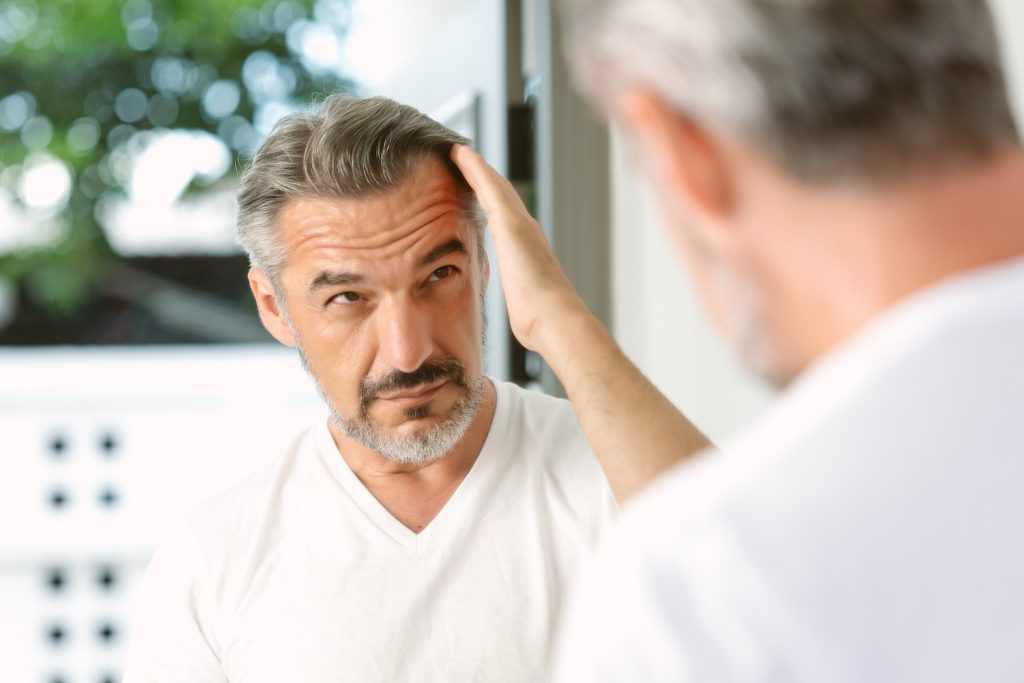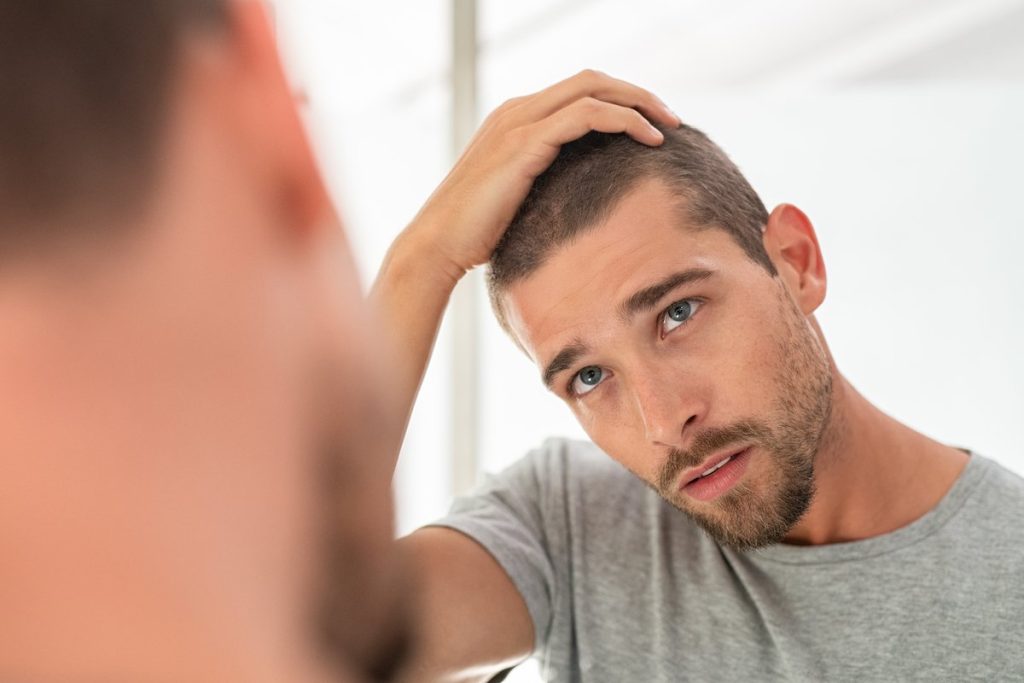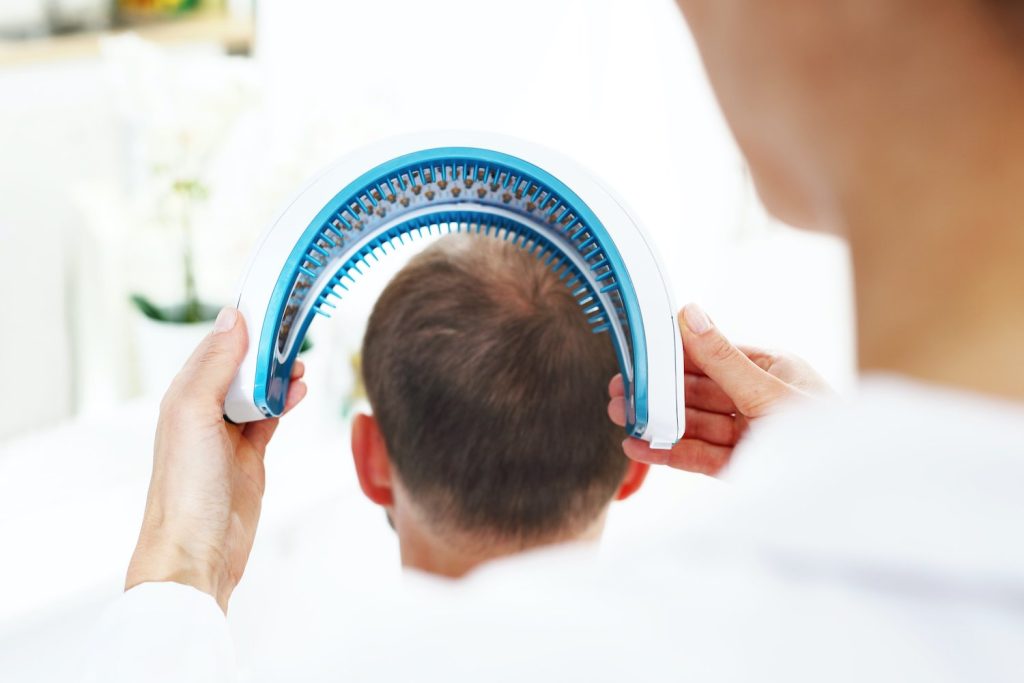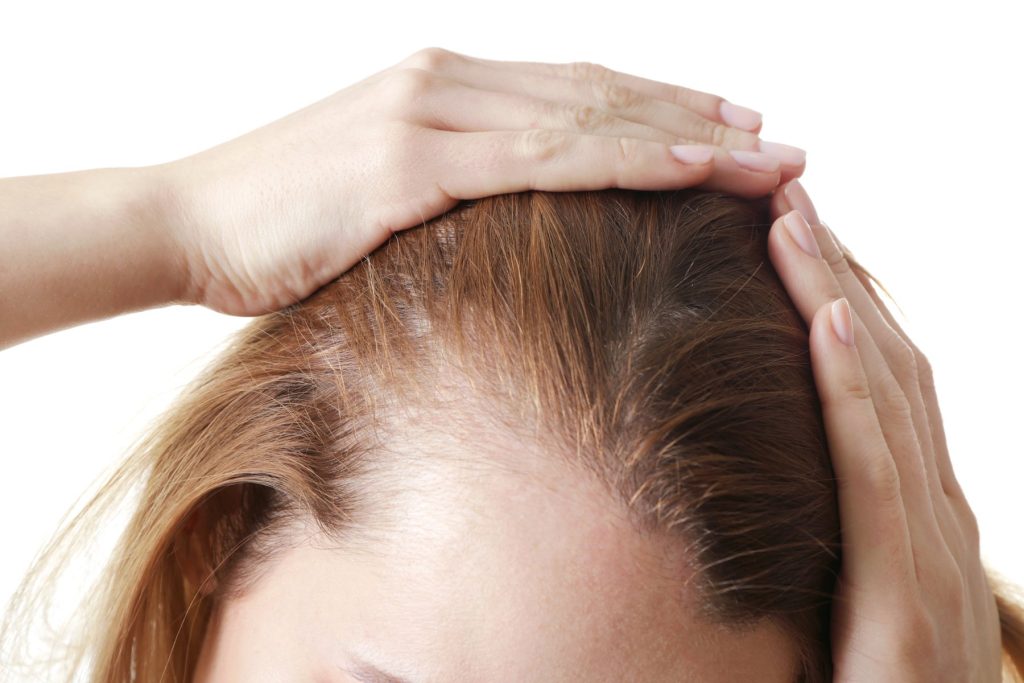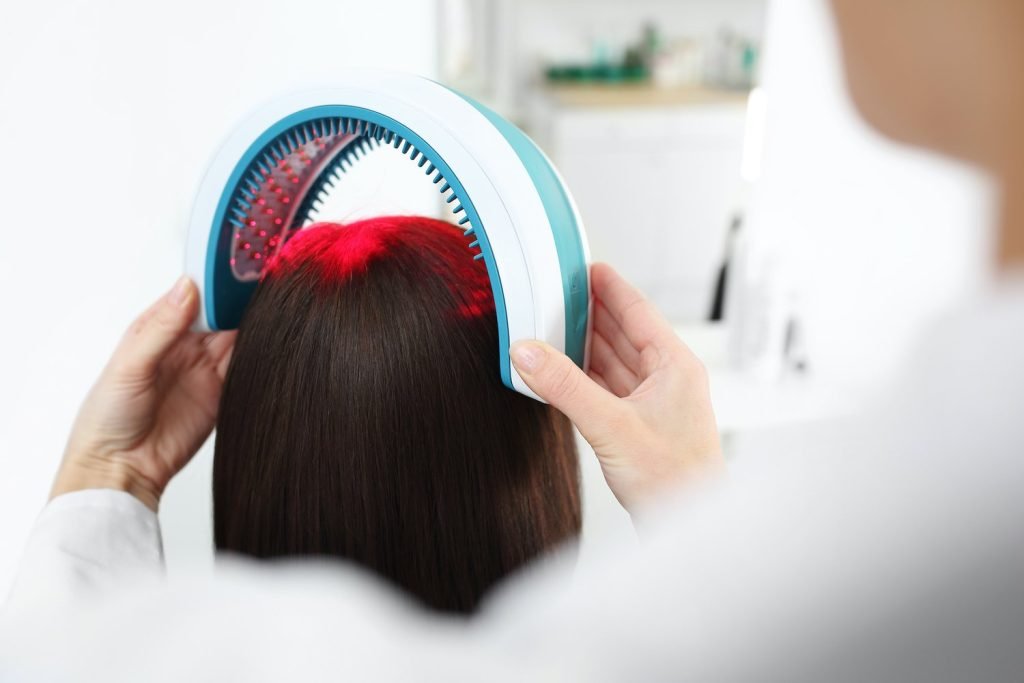- Hairline Clinic - Hair Loss Treatment in Akron and Cleveland Ohio - Schedule FREE Consultation
- 330.633.5225
- CONTACT US
Pregnancy, Nutrition and Hair Loss
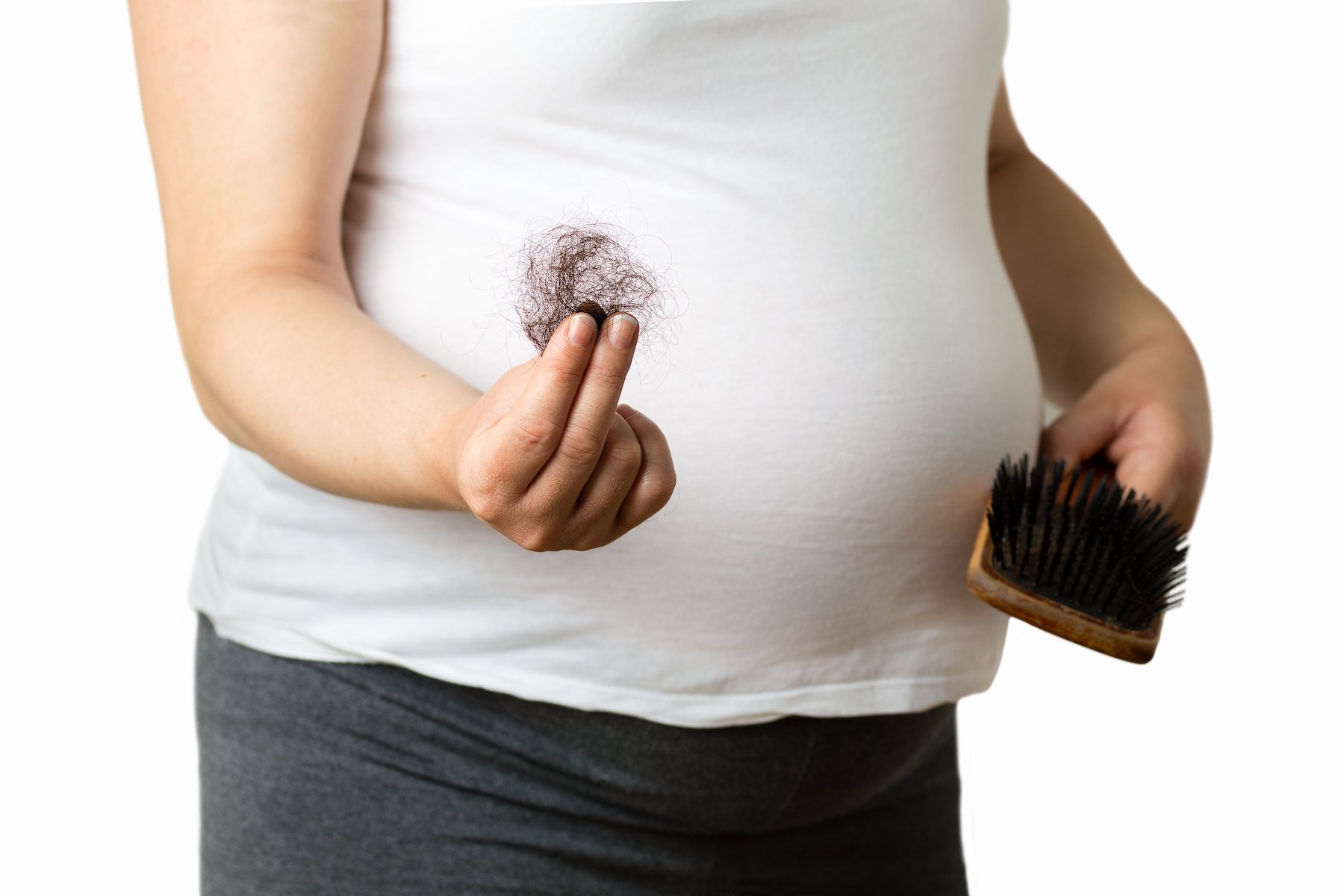
The demands that pregnancy puts on a woman’s body – and sometimes her emotional state – can take a toll in many ways, including causing hair loss.
Ah, the joys and quandaries of motherhood. It begins with all the hormonal changes in pregnancy, the stress of the life changes, and matter of eating for two (or three, or even more in multiple-child pregnancies).
And then there’s the matter of hair. Most women and couples don’t consider that having a child could possibly lead to women’s hair loss issues. The type of hair loss that occurs in women is not necessarily the type of condition that the local hair loss clinic can solve. During pregnancy, a lot is happening in the woman’s body. Understanding how hair loss “works” is helpful to understanding what to do if and when hair loss occurs during pregnancy.
At first, the mother-to-be might notice her hair is thicker and fuller during pregnancy. Pretty awesome, don’t you think? This is due to how some women experience an increase in estrogen levels, which has the effect of extending one of the phases of hair growth. (For background there are three hair phases: anagen, the active phase of the follicles producing new hair; catagen, when the follicle shrinks and stops hair growth; and telogen, a resting phase of about three or four months of no growth after which hair naturally falls out).
The extended phase in pregnancy is the anagen phase, growing vigorously due to the extra estrogen. Alas, that which gives often takes in life, and this process is no exception. Post-partum, those estrogen levels drop just at a time when the tough responsibilities of motherhood come full bloom. Less estrogen means the telogen phase is accelerated, leading to hair loss that can be compounded by sleepless nights, wrestling with new schedules, post-partum depression (for those who endure it), and possibly financial issues that come with growing families.
Another factor – fortunately, one that can be controlled to a certain extent – is nutrition deficiencies some women experience in pregnancy. The nutrients lost, and ways to recover them through smart eating, might be:
Biotin – This B vitamin is important for everyone’s hair health. Food sources are egg yolks, liver, nuts and seeds, sweet potatoes, spinach, salmon, and avocado. It can also be accessed with multivitamin supplements.
Vitamin D – Simply missing out on sunshine can cause this deficiency. Dairy, fatty fish (tuna, salmon, sardines), cod liver oil, egg yolks, and fortified foods are good sources.
Iron – Pregnancy increases a woman’s requirement for this essential nutrient. Sources: red meat, poultry, seafood (clams, oysters, sardines), beans, tofu, and spinach are excellent sources, but multivitamins can also include iron.
Protein – Fetuses require protein for growth, and so does hair. As several forms of animal protein provide other nutrients as well, vegetarians in particular need to pay very close attention to the quantities and varieties of plant protein they consume. Recommendation: work with a registered dietitian if you are an animal protein avoider.
Fortunately, hair loss due to pregnancy is most often temporary.
We provide hair loss solutions for women suffering from pregnancy-related hair loss at our hair loss treatment clinics in Cleveland and Akron Ohio.
If you are a woman suffering from a nutrition or pregnancy-related hair loss condition, we provide industry-leading, individualized hair loss treatments and hair loss solutions to women in Cleveland and Akron, OH. Schedule a FREE confidential consultation and evaluation at our Akron Hair Loss Treatment Clinic or our Cleveland Hair Loss Treatment Clinic by calling 330.633.5225 today!
Hair Loss Treatments
Men's Hair Loss Solutions
Women's Hair Loss Solutions
Men's Hair Loss Solutions
Ready for change? Call our hair loss experts at (330) 633-5225 to schedule a FREE appointment.
HairLine Clinic is an industry leader providing individualized hair loss treatments to men and women experiencing hair loss in Akron and Cleveland, Ohio.


